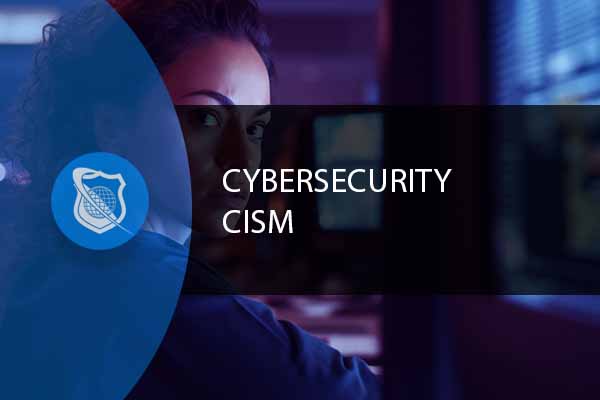In the dynamic and ever-changing world of cybersecurity, the debate around which certification to pursue is often centered on two major players: CISSP and CISM. These aren’t just mere acronyms; they are the gold standards in the realm of information security certifications. The question of “CISSP vs CISM” is a topic that has sparked countless discussions and debates among IT professionals, hiring managers, and cybersecurity experts. This article aims to demystify the key differences and similarities between these two prestigious certifications. We will explore a range of topics, from exam requirements and CISSP vs CISM salary expectations to specific job roles and career paths. By the end of this comprehensive guide, you’ll have a clearer understanding of which certification aligns best with your career goals and expertise.
Expanded Section: Why CISSP and CISM are Important in Cybersecurity
The Significance of Cybersecurity Certifications
In today’s digital age, the importance of cybersecurity cannot be overstated. With cyber threats becoming more sophisticated and frequent, organizations are in dire need of skilled professionals who can safeguard their digital assets. This is where cybersecurity certifications like CISSP and CISM come into play. These are not just letters to add after your name; they are badges of honor in the cybersecurity community, often serving as prerequisites for some of the most sought-after roles in the industry.
CISSP: The Technical Mastery
The CISSP (Certified Information Systems Security Professional) certification is tailored for those who are deeply involved in the technical aspects of information security. From system architecture to software development security, CISSP covers a broad spectrum of topics. It’s a certification that proves you have what it takes to design, implement, and manage a best-in-class cybersecurity program. With CISSP, you’re not just a participant in the cybersecurity ecosystem; you’re a key player who understands the intricacies of complex security systems.
Certified Information Systems Security Professional
CISSP is the perfect credential for those with advanced technical and managerial skills, experience, and credibility to design, implement, and manage an information security program that can protect organizations from sophisticated attacks.
CISM: The Managerial Excellence
On the flip side, the CISM (Certified Information Security Manager) certification is designed for management-focused professionals. This certification is all about the governance of information security, risk management, and the program development and management aspects of information security. If you’re looking to climb the corporate ladder and take on roles that require you to manage and govern an organization’s information security program, CISM is the certification for you.
The Career Impact: CISSP vs CISM
Both CISSP vs CISM have a significant impact on your career trajectory. Whether you’re an engineer looking to delve deeper into the technical aspects of cybersecurity or a manager aiming for governance and risk management roles, these certifications open doors. They’re not just resume boosters; they’re career accelerators. According to various industry surveys, professionals with these certifications often command higher salaries compared to those without.
The Bottom Line
In summary, both CISSP and CISM are more than just cybersecurity certifications; they are career-defining milestones. They serve as a testament to your skills, knowledge, and commitment to the field of information security. Whether you’re a seasoned professional or a newcomer looking to break into the industry, understanding the key differences and similarities between CISSP and CISM is crucial for your career development.
By expanding your knowledge in these areas, you’re not just preparing for an exam; you’re setting the stage for a fulfilling and lucrative career in cybersecurity. So, as you ponder the question of “CISSP vs CISM,” remember that the best choice is the one that aligns with your career goals and professional aspirations.
The Growing Need for Cybersecurity Certifications
The Escalating Cyber Threat Landscape
In an era where data breaches, ransomware attacks, and cyber espionage are becoming alarmingly commonplace, the need for robust cybersecurity measures has never been more urgent. Organizations are facing an increasingly sophisticated array of cyber threats that can have devastating consequences. This escalating complexity has catapulted cybersecurity from a niche IT concern to a top organizational priority.
The Surge in Demand for Certified Professionals
Given the high stakes, there’s a burgeoning demand for skilled professionals who can navigate the intricate landscape of information security. This is where cybersecurity certifications like CISSP and CISM come into the spotlight. These aren’t just optional credentials; they’re often mandatory requirements in job descriptions for roles ranging from Security Analysts to Chief Information Security Officers (CISOs).
CISM Training
Unlock your full potential in cybersecurity with our cutting-edge CISM training course! This isn’t just another certification; it’s a career game-changer. Designed for pros who’ve already aced Cisco and Microsoft exams like PenTest+ or CySA+, this course will arm you with advanced skills and the confidence to pass the CISM exam. Take the leap—enroll today!
CISSP and CISM: The Gold Standards
Among the plethora of information security certifications available, CISSP (Certified Information Systems Security Professional) and CISM (Certified Information Security Manager) stand out as the gold standards. These certifications are not just popular buzzwords; they’re the benchmarks that define your skill set and expertise in the cybersecurity domain. Whether you’re interested in the technical aspects of security protocols or the managerial responsibilities of risk assessment, these certifications offer specialized pathways for career advancement.
CISSP vs CISM: Navigating Career Choices
Understanding the key differences and similarities between CISSP and CISM is crucial for anyone serious about a career in cybersecurity. While CISSP is tailored for those who wish to dive deep into the technicalities of security systems, CISM is designed for those aspiring to manage and govern an organization’s information security program. Each has its own set of exam requirements, career paths, and salary expectations, making the choice between CISSP vs CISM a pivotal decision in your professional journey.
The Role of Certifications in Career Advancement
It’s not just about passing an exam; it’s about setting the trajectory for your career. Professionals with CISSP or CISM certifications often find themselves at a significant advantage when it comes to job opportunities and salary negotiations. According to industry surveys, the CISSP vs CISM salary potential can vary, but both certifications can significantly boost your earning power.
The Bottom Line: Certifications as a Necessity, Not a Luxury
In today’s volatile cybersecurity landscape, having a certification is often considered a necessity rather than a luxury. Organizations are actively seeking certified professionals who can not only respond to threats but also proactively manage risks. As you navigate your career options, the question isn’t just about choosing between CISSP and CISM; it’s about aligning your certification choice with your long-term career goals and the specific skills you wish to acquire or enhance.
By understanding the growing need for cybersecurity certifications and how CISSP and CISM fit into this demand, you’re taking a crucial step toward a secure and prosperous career in information security.
Certified Information Systems Security Professional
CISSP is the perfect credential for those with advanced technical and managerial skills, experience, and credibility to design, implement, and manage an information security program that can protect organizations from sophisticated attacks.
CISSP vs CISM: Exam Requirements
Navigating the complex landscape of cybersecurity certifications can be a daunting task, especially when you’re faced with the decision of choosing between CISSP and CISM. Both certifications are highly respected in the industry, but they cater to different skill sets and career paths. One of the most critical factors in making this decision is understanding the exam requirements for each. In this section, we’ll delve into the nitty-gritty details of what it takes to earn these prestigious certifications.
CISSP Exam Requirements: A Deep Dive into Technical Mastery
| Aspect | CISSP | CISM |
|---|---|---|
| Governing Body | (ISC)² | ISACA |
| Focus | Technical | Managerial |
| Number of Domains | 8 | 4 |
| Domain Topics | Security and Risk Management, Asset Security, etc. | Information Risk Management, Governance, etc. |
| Exam Format | Multiple-choice | Multiple-choice |
| Number of Questions | 100-150 | 150 |
| Exam Duration | 3 hours | 4 hours |
| Question Style | Real-world scenarios | Scenario-based, managerial focus |
| Test Preparation | Crucial due to difficulty | Involves case studies and strategic understanding |
| Ideal for | Technical roles | Managerial roles |
Governed by (ISC2)
The CISSP (Certified Information Systems Security Professional) certification is governed by the International Information System Security Certification Consortium, commonly known as ISC2. This organization sets the standards and exam requirements for CISSP, ensuring that the certification remains relevant and up-to-date with the latest industry trends.
Eight Domains of Knowledge
The CISSP exam is comprehensive and covers a wide range of topics across eight domains. These domains include Security and Risk Management, Asset Security, Security Architecture and Engineering, Communication and Network Security, Identity and Access Management, Security Assessment and Testing, Security Operations, and Software Development Security. Each domain is designed to test your technical expertise and understanding of complex cybersecurity concepts.
Exam Format and Duration
The CISSP exam consists of 100-150 multiple-choice questions, and you’ll have three hours to complete it. The questions are designed to assess your ability to apply your knowledge in real-world scenarios, making it a challenging but rewarding experience. CISSP test preparation is crucial, as the exam is known for its difficulty level.
CISM Training
Unlock your full potential in cybersecurity with our cutting-edge CISM training course! This isn’t just another certification; it’s a career game-changer. Designed for pros who’ve already aced Cisco and Microsoft exams like PenTest+ or CySA+, this course will arm you with advanced skills and the confidence to pass the CISM exam. Take the leap—enroll today!
CISM Exam Requirements: A Focus on Managerial Excellence
Administered by ISACA
Unlike CISSP, the CISM (Certified Information Security Manager) certification is administered by ISACA, an international professional association focused on IT governance. ISACA sets the guidelines and exam requirements for CISM, ensuring that the certification aligns with the needs of management-focused professionals.
Four Domains of Expertise
The CISM exam is structured around four key domains: Information Risk Management, Governance, Program Development and Management, and Incident Management. These domains are tailored to assess your managerial skills and your ability to develop and manage an organization’s information security program.
Exam Format and Duration
The CISM exam consists of 150 questions, and you have four hours to complete it. Unlike the CISSP exam, the questions on the CISM exam are more scenario-based and focus on problem-solving from a managerial perspective. CISM test preparation often involves studying case studies and understanding the strategic implications of information security management.
CISSP vs CISM: Making the Right Choice
Understanding the exam requirements for CISSP and CISM is crucial for making an informed decision. If you’re more technically inclined and enjoy getting into the weeds of cybersecurity protocols, CISSP is likely the better fit for you. On the other hand, if you see yourself in a managerial role, focusing on strategy and governance, CISM would be more aligned with your career goals.
By comprehending the nuances of CISSP vs CISM exam requirements, you’re one step closer to choosing the certification that will serve you best in your cybersecurity career.
CISSP vs CISM: Salary Expectations
The Financial Rewards of Cybersecurity Certifications
In the competitive field of cybersecurity, certifications like CISSP and CISM are not just career enhancers; they’re also salary boosters. The financial rewards that come with these certifications are substantial, making them a lucrative investment for professionals in the field.
CISSP Salary: A Reflection of Technical Expertise
Average Salary Range
According to industry surveys and salary reports, professionals with a CISSP certification can expect an average salary ranging from $90,000 to $120,000 per year. This range can vary based on factors like experience, geographic location, and the specific responsibilities of the job role.
Factors Influencing CISSP Salary
The CISSP salary is often reflective of the technical depth required by roles that demand this certification. Professionals in technical roles such as Security Analyst, Security Engineer, and even Chief Information Security Officer (CISO) can command these higher salaries. The CISSP certification is a testament to your technical skills and expertise, and employers are willing to pay a premium for that.
Certified Information Systems Security Professional
CISSP is the perfect credential for those with advanced technical and managerial skills, experience, and credibility to design, implement, and manage an information security program that can protect organizations from sophisticated attacks.
CISM Salary: The Managerial Edge
Average Salary Range
For CISM-certified professionals, the salary range is similar to that of CISSP, but it often skews higher for those in managerial roles. According to various surveys, a CISM-certified individual can expect an average salary that ranges from $100,000 to $130,000 per year.
Factors Influencing CISM Salary
The CISM salary often reflects the managerial and governance responsibilities that come with roles suited for this certification. Professionals in roles like Information Security Manager, Risk Manager, and Compliance Officer are among those who can expect higher salaries with a CISM certification.
Expanded Section: CISSP vs CISM: Difficulty Level
The Challenge of Cybersecurity Certifications
Both CISSP and CISM exams are challenging in their own right, but they test different skill sets and knowledge bases. Understanding the level of difficulty for each can help you better prepare and set realistic expectations for your certification journey.
CISSP Difficulty: A Technical Gauntlet
The CISSP exam is often considered more challenging due to its technical depth. It covers a wide range of topics across eight domains, from Security and Risk Management to Software Development Security. The exam requires a strong understanding of various cybersecurity concepts and practices, making CISSP test preparation essential for success.
CISM Difficulty: Managerial Complexity
While the CISM exam is not considered easy by any means, it is often viewed as less technical and more focused on management and governance. The exam covers four domains, including Information Risk Management and Governance, and requires a deep understanding of how to manage and govern an organization’s information security program. CISM test preparation often involves a focus on case studies and real-world scenarios from a managerial perspective.
By understanding the salary expectations and difficulty levels associated with CISSP and CISM, you can make a more informed decision about which certification is the right fit for your career goals and expertise.
CISSP vs CISM: Study Guides and Test Preparation
The Importance of Effective Test Preparation
In the realm of cybersecurity certifications, effective test preparation is not just recommended; it’s essential. Both CISSP and CISM exams are rigorous and require a deep understanding of various domains. Fortunately, there are numerous resources available to help you prepare for these challenging exams.
CISSP Study Guide and Test Preparation: A Comprehensive Approach
Types of Resources
For CISSP test preparation, you’ll find a plethora of resources, including books, online courses, webinars, and practice exams. These resources are designed to cover the eight domains that make up the CISSP exam comprehensively.
Depth of Coverage
The CISSP study guide materials delve deep into each domain, offering insights into topics like Security and Risk Management, Asset Security, and Software Development Security. These guides often include practice questions that mimic the type of questions you’ll encounter on the exam, providing a realistic test-taking experience.
Recommended Practices
Given the technical depth of the CISSP exam, it’s advisable to combine multiple resources for a well-rounded preparation strategy. Online forums and study groups can also be beneficial, offering peer support and additional perspectives on complex topics.
CISM Training
Unlock your full potential in cybersecurity with our cutting-edge CISM training course! This isn’t just another certification; it’s a career game-changer. Designed for pros who’ve already aced Cisco and Microsoft exams like PenTest+ or CySA+, this course will arm you with advanced skills and the confidence to pass the CISM exam. Take the leap—enroll today!
CISM Study Guide and Test Preparation: Managerial Focus
Types of Resources
Like CISSP, there are abundant resources available for CISM test preparation. These include books, online courses, and practice exams, all tailored to the managerial focus of the CISM exam.
Depth of Coverage
CISM study guides concentrate on the four domains of the exam: Information Risk Management, Governance, Program Development and Management, and Incident Management. These materials often include case studies that help you understand the real-world implications of managerial decisions in information security.
Recommended Practices
Given the managerial nature of the CISM exam, it’s beneficial to focus on case studies and scenario-based questions during your preparation. Networking with professionals who have already earned the CISM certification can also provide valuable insights into the exam’s managerial aspects.
Expanded Section: CISSP vs CISM: Job Roles and Career Paths
The Career Implications of Your Certification Choice
The certification you choose—be it CISSP or CISM—will have a significant impact on your job roles and career path. Both certifications are highly respected in the industry but cater to different skill sets and job responsibilities.
CISSP Job Roles: Technical Expertise in Action
CISSP is often a prerequisite for technical roles in the cybersecurity field. Job titles like Security Analyst, Security Engineer, and Security Consultant frequently list CISSP as a required or preferred qualification. The certification serves as a testament to your technical skills and expertise, making you a valuable asset in any organization’s cybersecurity efforts.
CISM Job Roles and Career Path: Managerial Excellence
CISM, on the other hand, is geared towards professionals aiming for managerial roles. Positions like Information Security Manager, Security Consultant, and even Chief Information Security Officer (CISO) often require or prefer candidates with a CISM certification. This certification showcases your ability to manage and govern an organization’s information security program effectively.
By understanding the nuances of CISSP vs CISM in terms of study guides, test preparation, and career paths, you’re better equipped to make an informed decision that aligns with your professional goals and expertise.
CISSP vs CISM: Pros and Cons
| Aspect | CISSP | CISM |
|---|---|---|
| Pros | ||
| Technical Depth | ✔️: Ideal for specialization in technical domains | ❌: Less technical focus |
| Recognition | Widely recognized as the gold standard | Globally recognized, especially for management |
| Career Versatility | Suitable for various job roles | Primarily suited for managerial roles |
| Cons | ||
| Exam Difficulty | Known for high difficulty level | Generally considered less technical |
| Continuing Education | Requires 40 CPE credits/year | Requires 20 CPE credits/year |
| Focus Limitation | Highly technical, less managerial | Highly managerial, less technical |
CISSP vs CISM: Continuing Education
The Commitment to Lifelong Learning
Both CISSP and CISM certifications require a commitment to continuing education to maintain the credential. For CISSP, you’ll need to earn 40 CPE credits per year, while CISM requires 20. This commitment to CISSP and CISM continuing education ensures that certified professionals stay updated with the latest trends and developments in the field.
Expanded Section: CISSP vs CISM: Special Considerations for Managers and Engineers
Tailoring Your Certification to Your Career Path
CISSP vs CISM for Managers
If you’re aiming for a managerial role in cybersecurity, CISM is undoubtedly the better option. It focuses on governance, risk management, and program development—skills that are essential for leadership positions. The CISM certification will equip you with the knowledge and skills to manage and govern a company’s information security program effectively.
CISSP vs CISM for Engineers
On the other hand, if you’re more inclined towards the technical aspects of cybersecurity, CISSP should be your go-to certification. It covers a wide range of technical domains and is ideal for engineers and technical experts who wish to delve deep into the intricacies of cybersecurity protocols and practices.
By understanding the pros and cons, continuing education requirements, and special considerations for managers and engineers, you can make a more informed decision between CISSP and CISM, aligning your choice with your career goals and expertise.
Conclusion
Choosing between CISSP and CISM depends on your career goals, the type of roles you’re aiming for, and your personal interests in the field of cybersecurity. Both certifications offer distinct advantages and can open doors to lucrative job opportunities. By understanding the key differences and similarities, you can make an informed decision that aligns with your career aspirations.
CISSP vs CISM : Comprehensive FAQ Guide
What are the key differences between CISSP and CISM certifications?
Security Manager (CISM) certifications cater to different aspects of information security. CISSP focuses on technical skills and knowledge required for IT security roles, including security architecture, engineering, and management. It is designed for professionals working directly with system security. On the other hand, CISM is aimed at management and governance, focusing on information risk management, governance, and developing organizational security practices. It is best suited for individuals looking to move into information security management roles.
Who should pursue the CISSP certification, and who is the ideal candidate for CISM?
Individuals aiming for technical, hands-on roles in information security, such as security analysts, engineers, or architects, should consider the CISSP certification. It’s ideal for those involved in the implementation and management of information security programs. Conversely, CISM is tailored for IT professionals who aspire to senior management roles, like CISOs or security managers, focusing on governance, risk management, and policy development. It suits those who are more involved in overseeing and aligning information security programs with broader business goals.
How do the prerequisites for CISSP and CISM compare?
For CISSP, candidates must have a minimum of five years of cumulative, paid work experience in two or more of the eight domains of the CISSP. A four-year college degree or equivalent, or an approved credential, can reduce this requirement by one year. CISM also requires five years of work experience in information security, with at least three years in information security management in three or more of the CISM job practice areas. Waivers for up to two years of experience are available for CISM candidates holding certain qualifications.
Can holding both CISSP and CISM certifications be beneficial?
Yes, possessing both CISSP and CISM certifications can be highly beneficial, especially for professionals aiming to demonstrate a broad and comprehensive understanding of both the technical and managerial aspects of information security. Holding both certifications can enhance a professional’s credibility, marketability, and potential for career advancement, as it showcases a commitment to both the operational and strategic facets of information security management.
What are the continuing education requirements for maintaining CISSP and CISM certifications?
CISSP certification holders are required to earn and submit a minimum of 40 Continuing Professional Education (CPE) credits each year, totaling 120 CPE credits over a three-year certification cycle. Similarly, CISM certification holders must also obtain and report 120 CPE credits over a three-year period, with a minimum of 20 CPE credits per year, to maintain their certification status. These requirements ensure that certified professionals stay current with the latest developments and best practices in the field of information security.
Certified Information Systems Security Professional
CISSP is the perfect credential for those with advanced technical and managerial skills, experience, and credibility to design, implement, and manage an information security program that can protect organizations from sophisticated attacks.
You may also like:
- How Much is a Hacker Paid: Salary Trends in the Cybersecurity Industry
- Why Recommended: This blog discusses salary trends in the cybersecurity industry, which is directly related to the CISSP vs CISM Salary section in your blog. It will provide the reader with additional insights into the financial aspects of choosing between CISSP and CISM.
- Hacking Lessons Online: A Review of Top Courses
- Why Recommended: This blog reviews top hacking courses, which can be beneficial for readers looking for study materials, aligning well with the CISSP Study Guide and CISM Study Guide sections of your blog.
- Ethical Hacking Careers: Your Path to Cybersecurity Success
- Why Recommended: This blog focuses on career paths in cybersecurity, making it a good match for the CISSP vs CISM: Job Roles and Career Paths section in your blog. It will help readers understand the broader career implications of choosing between CISSP and CISM.
- Device Hacking Website: Unveiling the Tactics of Cybercriminals
- Why Recommended: This blog explores the tactics used by cybercriminals, adding depth to the CISSP vs CISM: Pros and Cons section of your blog by providing real-world examples of threats that professionals with either certification might have to counter.


























